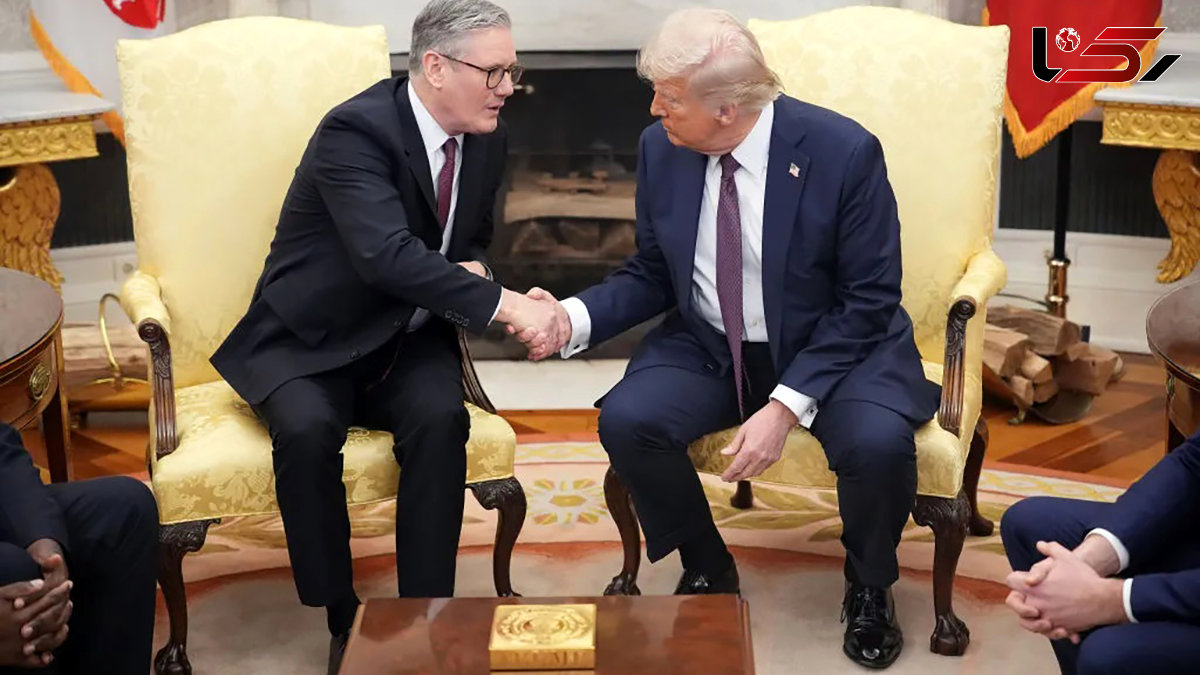Trump’s UK State Visit: Lavish Ceremonies Met with Criticism of Putin and Migration Advice
Rokna Political Desk: Britain rolled out the red carpet for Donald Trump during his second state visit, but questions remain over the tangible benefits of the pomp, particularly on trade, foreign policy, and long-term economic gains.

According to Rokna, citing CNN, in his state banquet speech, Donald Trump hailed the U.S.-UK bond as “unbreakable,” yet the British government spent much of the week bracing for missteps that could damage the so-called “special relationship” and threaten Prime Minister Keir Starmer’s standing.
Trump’s visit coincided with a politically sensitive moment for Starmer, following the dismissal of Peter Mandelson as ambassador to Washington over ties to convicted sex offender Jeffrey Epstein. Careful measures ensured that neither Mandelson’s absence nor Trump’s own past associations with Epstein overshadowed the visit. Protesters projecting images of Trump and Epstein onto Windsor Castle were detained, and journalists were largely kept from raising controversial questions.
While the UK managed to avoid public mishaps, the tangible returns of Trump’s visit are under scrutiny. Starmer highlighted a £150 billion ($203 billion) investment package from U.S. firms, including £31 billion from tech giants to bolster AI infrastructure and £90 billion from Blackstone over the next decade, projected to create 7,600 jobs. Yet critics argue most of these investments were already in the pipeline, merely bundled to coincide with Trump’s visit.
“There are big question marks about some of the details of these deals… including what concessions the UK made to maintain close tech ties,” said Olivia O’Sullivan of Chatham House. Former deputy prime minister Nick Clegg described the tech deal as little more than “sloppy seconds from Silicon Valley,” warning it underscores the UK’s technological dependence on the U.S.
Energy requirements for AI infrastructure pose additional challenges, particularly given Trump’s longstanding criticism of Britain’s green energy policies. However, both countries did sign an agreement to facilitate nuclear power projects domestically.
In the short term, Britain’s economic situation remains largely unchanged. Trump’s 10% tariff on British goods persists, higher than pre-Trump levels, and hoped-for relief on steel tariffs has stalled, leaving the UK’s steel sector struggling.
On foreign policy, Starmer largely avoided confrontation. While Trump criticized Vladimir Putin for failing to end the war in Ukraine, he did not pledge additional pressure, tying action to reduced European and Indian imports of Russian energy.
Trump also offered advice on tackling illegal immigration, telling Starmer he could “call out the military” to curb small boat arrivals—a suggestion likely to energize Britain’s hard-right opposition.
Ultimately, while Starmer successfully navigated potential political pitfalls during the visit, translating Trump’s enthusiasm into concrete trade or foreign policy gains appears limited, leaving Britain to weigh whether the grandeur of the state visit delivered substantive results.
Send Comments